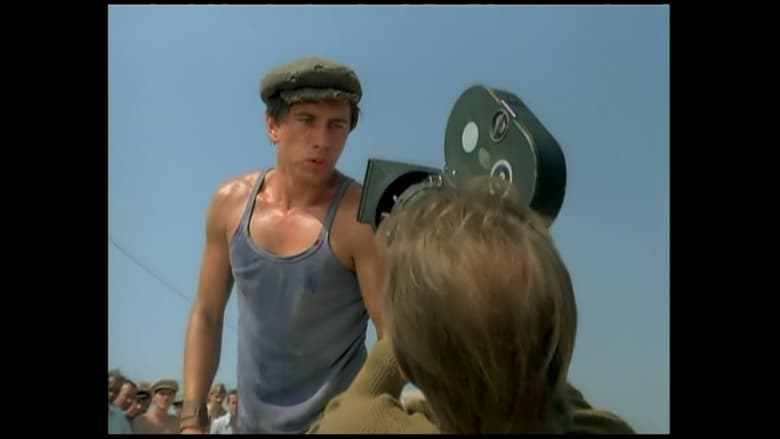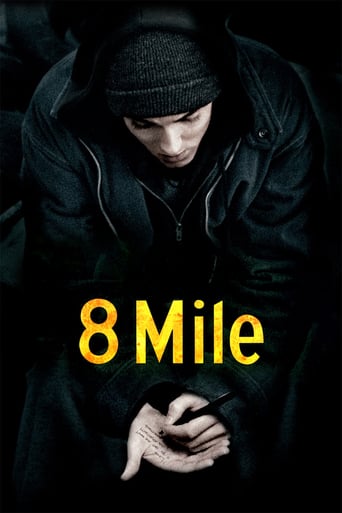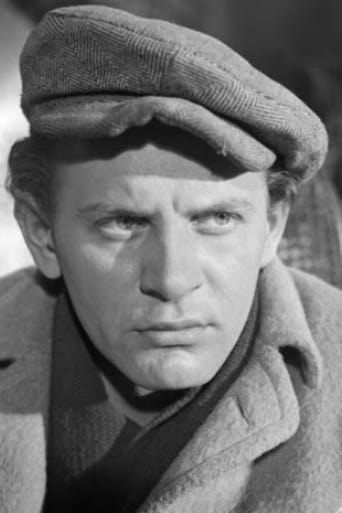

Man of Marble (1981)
A young Polish filmmaker sets out to find out what happened to Mateusz Birkut, a bricklayer who became a propaganda hero in the 1950s but later fell out of favor and disappeared.
Watch Trailer
Cast
Similar titles


Reviews
People are voting emotionally.
I like movies that are aware of what they are selling... without [any] greater aspirations than to make people laugh and that's it.
This film is so real. It treats its characters with so much care and sensitivity.
The story, direction, characters, and writing/dialogue is akin to taking a tranquilizer shot to the neck, but everything else was so well done.
In my recent reviews of the Defa films about the life of Karl Liebknecht I pointed out, that the textbook Bolshevist character is revolutionary and self-sacrificing, willing to exploit itself for the benefit of society. It chanced that I have just seen the Polish film Man of Marble, which elaborates on just this subject. Hence I enjoyed the film, even though the message in the narrative is rather vague. The story plays in the late seventies. The leading thread is a film project, that is meant to finish the studies of Agnieszka, one of the main characters. She decides to make a commentary on the former lead worker Mateusz Birkut, who rose to extreme popularity in the fifties. Then in the aftermath of Stalinism he was discredited and put in prison, apparently simply because he became a bit of a nuisance - like so many others. Agnieszkas project is not welcomed by the authorities, because it reopens old wounds. However, they do provide her with the means to start the project (a camera crew of three people). As the story unfolds, Agnieszka turns out to be a typical news-hawk: intrusive, chasing "great material", without much respect for other peoples feelings. In a chain of interviews the old companions tell about their part in Birkuts career. I don't know if it is intended, but my sympathy went mainly to those characters, people who were less fortunate than Birkut, and nonetheless managed to do something useful with their lives. Birkut starts as a brick layer. He participates in a propaganda project, that aims to boost productivity in building. It uses the division of labor, and the mechanic motion, that in the west is called Taylorism. Birkut is launched as a celebrity, a working class hero, and enjoys all the privileges. Many former colleagues get a dislike for him, since he pushes up their norms. At the same time, the authorities get tired of Birkuts mediation for fellow workers,and try to put him on the sidelines. Birkut ignores the warning signals, and is eventually convicted and imprisoned for four years. In the post-Stalin era he is rehabilitated, but due to his embitterment he remains an outcast. After all these years Agnieszka is unable to track him down, but she finds his son Maciej Tomczyk (Birkut never really married, and later abandoned his girlfriend). Maciej tells that Birkut has passed away. In the sequel Man of Iron we learn that he was actually shot during a workers' upsurge. As said above, the film message is mixed. Birkut is not a man of high morals, but a victim of the system. The increase of labor productivity is a common goal in all economies, no matter what their ideologies may be. In capitalism the driving force is extra pay, or in times of large unemployment the competition between the workers. In the Bolshevist states the workers were supposed to voluntarily exploit themselves. Solshenitsyn once told a story, that just after the revolution the propaganda drove some simple minds to actually work themselves to death. Later productivity was stimulated by giving social rewards for excellent achievements (the famous surpassing of the planned task), in the form of marks of honor (often to a collective or enterprise). Workers ethics in Japan have also been mentally unhealthy. You need trade unions to provide for a counterbalance, and this is in fact the subject of the sequel film Man of Iron. In my opinion the film is not anti-Bolshevist - and it was financed by the state. It just calls for better balances in the social power distribution within the system. Probably there are lots of hidden meanings in the film. For instance, Birkut burns his fingers, after "subversive elements" have heated one of his bricks, which is quite funny. From then on Birkut wears gloves. And a fellow worker of Birkut enters the office of a party bureaucrat and never returns, even though there is no other exit. The legs of Agnieszka move in all directions (you will not see this behavior with for instance Julia Roberts). This category of social films is just my cup of tea, so if you like the type I suggest that you read my other reviews.
I came to this film after having watched Wajda's "Ashes and Diamonds," which I consider to be one of the finest films I have seen. However, "Man of Marble" was just too quirky for me, leaving me a bit perplexed. The story concerns a young film student, known here only as Agnieszka, who decides to produce a documentary on one Mateusz Birkut as her graduation project. Birkut was an idealistic bricklayer who rose to the status of post-WWII hero by way of displaying superior efficiency and strength. His innovation of how to use a small team to accomplish improved production came to be so well recognized that he would tour the country setting up such teams. The film time-slices from the 1970s, when Agnieszka is making her film, to previous times, all the way back to mock documentary footage of Birkut in the 1950s. The presentation is anything but flattering to the Communist Party and it is astounding the Wajda was able to get this made in a time when the Communists were still in power in Poland. The story must be autobiographical to some extent, since we see Agnieszka encountering political opposition to her digging too deeply into the past trying to reconstruct Birkut's life and figure out why he essentially dropped from the scene after having been so highly visible; there is also a famous film director in the movie whom we get to know well.There are many scenes that had the quality of a dream, but yet seemed like they were supposed to be taken for real. For example, one scene has Burkit's friend Witek going into a small office of a party boss and, when Burkit enters the office some time later there is no sign of Witek. If this were to be taken as some sort of Kafkaesque event, then Burkit would have made no remark on the mysterious disappearance, but he express the surprise that any normal person would have. I did not know what to make of such scenes. Agnieszka's facial expressions and body movements are often quite odd, bordering on the bizarre, and they accentuated the feeling of unreality I had that became increasingly more pronounced as the movie progressed.The collage of Agnieszka's interviews, mock documentary footage, scenes from Burkit's life, scenes from Agnieszka's own life, and an inappropriate musical score did not coalesce for me.
Andrzej Wajda has always impressed me, and his war trilogy are among the best and most essential films in the history of cinema, but "Man of Marble" is an ambitious, interesting idea that isn't realized very well in script or in terms of the finished product.The most interesting aspect of "Man of Marble" outside of the much-examined similarities to "Citizen Kane" is how subversive it is. I wonder how this was ever released in Poland at the time, and the scenes in the film where I felt Wajda really did succeed as a director is where he contrasts Soviet propaganda with the actual events- very powerful. Wajda fails more than he succeeds with this particular film though, it's a disjointed narrative and it takes tremendous skill to keep the audience interested in both stories. Sure, one may argue that "Man of Marble" isn't intended as entertainment, but even in the context of art-house cinema this film is only engaging in parts, with Agnieszka's attempt to make this film ending up far more interesting than the film she's making.I can see where Wajda is going with the way he shot this film, but it just doesn't work very well, and the score for this film has to be one of the worst matches I've ever come across. It's ludicrous.Something of a companion piece by the same writer and director, I found "Man of Iron" far more engaging and impressive.5/10
The usual comparison- and inspiration- is with Citizen Kane, but there are important differences. One is that the hero here really is a citizen- a comrade in his own eyes- and the other is the difference in the person trying to learn about him. The reporter in Citizen Kane is an experienced hack who is indifferent except to the front page; Agnieska is at the start of her possible career, making her graduation film, the one which will make her name and determine her future and looking for a story that matters in itself; indeed, Agnieska's story is as important to the film as Birkut's and in some ways her story reflects his. She works as determinedly as any Stakhanovite and the way she binds her helpers- the film crew, archivists, people who knew Birkut- to her in her task and to think it worth doing for themselves means that she creates a shock-force as real as and more effective than Birkut's display team of brickies. Again, the characters we meet who knew Birkut all have a relationship with Poland as well as Birkut and their own careers- building-worker to political prisoner to industrialist; chekist to strip-club manager; propaganda film-director to...film-director; gymnast to drunkard- reflect the changes as they- and communist Poland- age. There's hope- the old cameraman blasted into admiration and respect for Agnieska when she shows she'll do his job for him. Indeed, Agnieska is a wonderful character, her long limbs wrapped round her, carrying "everything I possess" round everywhere, smoking cigarettes avidly, demanding "wide screen, like an American movie"- you can see why the Party and her superiors want her to succeed and why they fear her. Not only that, but the film is fair to Communist Poland- we see Agnieska's home and realise that it is because of the opportunities given by communism that she can leave the boundaries imposed on her railway-worker father, just as Birkut only achieves fame as a worker in a supposedly workers' state. It is because both of them take rhetoric seriously that they are finally unsuccessful. After all, we never do know who sabotaged the bricks and burned Birkut's hands, and it doesn't really matter in a state where rhetoric is what counts.










